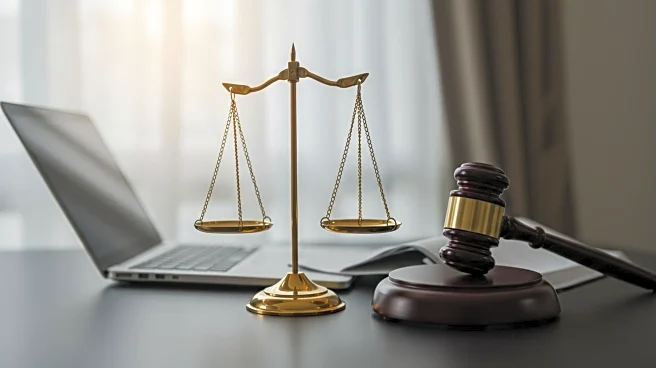What's Happening?
The Israel Police have appealed a court decision allowing Prime Minister Benjamin Netanyahu's adviser, Yonatan Urich, to resume work at the Prime Minister's Office amid the ongoing Qatargate scandal. The police argue that Urich's actions were against the interests of the Prime Minister's Office and the state. Despite Netanyahu's testimony stating there was nothing improper in Urich's dealings with Qatar, the police maintain that there is direct evidence contradicting this claim. The court's decision has sparked controversy, with restrictive conditions imposed on Urich, barring him from contacting the Prime Minister's Office and other suspects.
Why It's Important?
The Qatargate scandal and the court's ruling on Yonatan Urich have significant implications for Israeli politics and governance. The case raises questions about transparency and accountability within the Prime Minister's Office, potentially affecting public trust in government institutions. The police's challenge to the court ruling highlights tensions between law enforcement and political figures, which could influence future legal and political proceedings. The situation underscores the complexities of international relations and security concerns, particularly regarding dealings with foreign entities like Qatar.
What's Next?
The appeal by the Israel Police may lead to further legal scrutiny and investigations into the Qatargate scandal. The court's decision and the police's challenge could prompt additional testimonies and evidence gathering, potentially impacting the political landscape in Israel. Stakeholders, including political leaders and legal experts, are likely to engage in discussions about the implications of the case for governance and security policies. The outcome of these proceedings could shape future interactions between political advisers and foreign entities.
Beyond the Headlines
The Qatargate scandal raises broader ethical and legal questions about the role of political advisers and their influence on government decisions. The case may lead to long-term shifts in how political accountability and transparency are perceived in Israel, affecting public trust and international relations. The situation highlights the need for clear guidelines and oversight in political dealings with foreign entities, ensuring that national security interests are protected.










